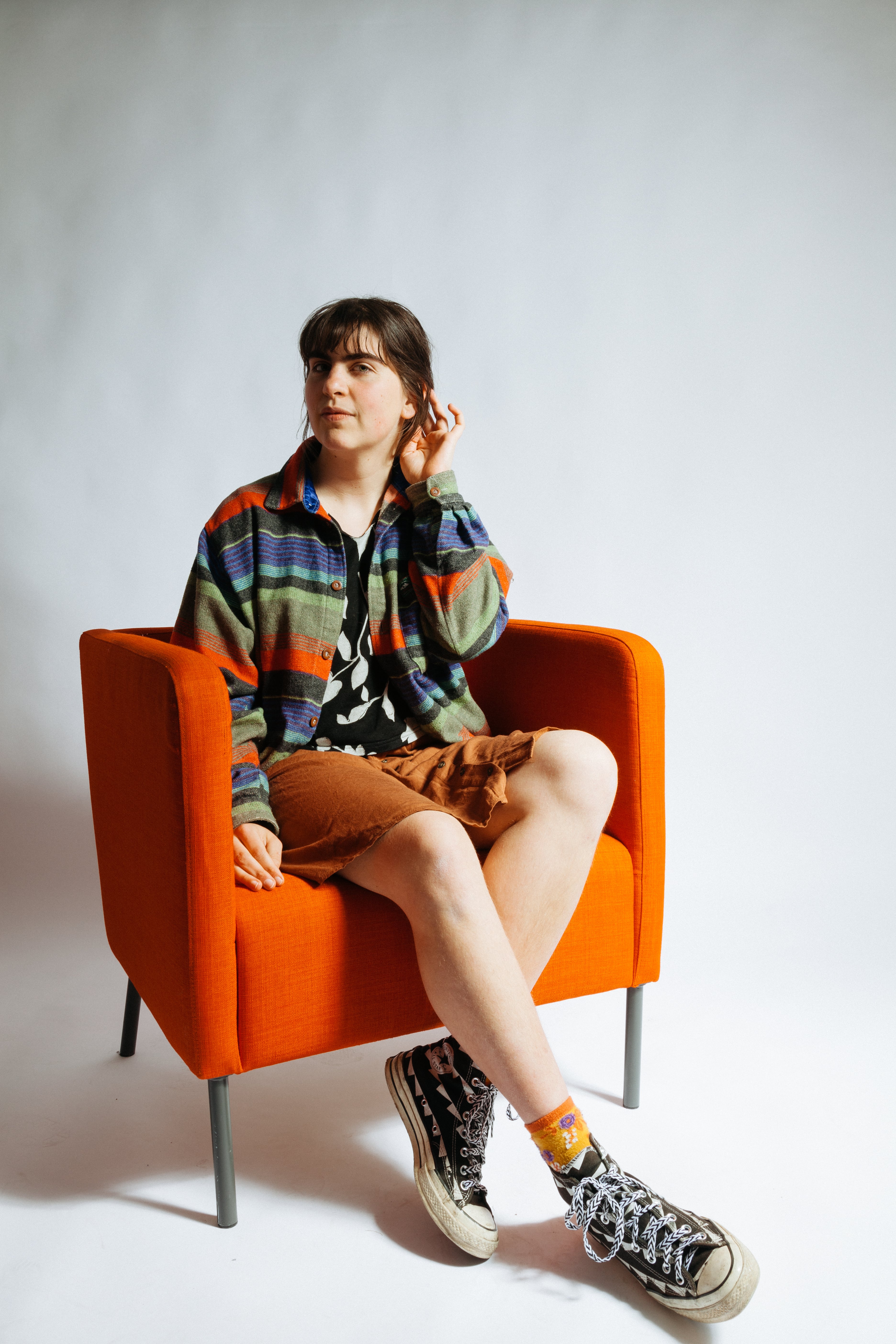ABOUT-Extended
I experiment with what “a social practice” or “socially engaged art” could be. Each of the selected works posits different questions around individualism, conflict, and human relation.
In my work, the audience and/or invited people engage with each other through the artwork. For example, asking people to knead dough together or to sing karaoke. The relation between people is the artwork itself, so in my understanding, without people there is no artwork. I sometimes invite people into the process of making too.
A working term I use is “social performance” because I borrow methods of working and display from performance art and theater, in staging the work through light and shadow, in how I construct the space for engagement, and in the props and scenography I build to actualize it. I also assume the visitor of the space to be an actor of oneself, a role they take up in the moment of interaction.
An Idiotic Methodology
How can one maintain a relation to infinity and not search for the things oneself already knows? The Idiot methodology is about the conundrum of knowledge, either in what is important to know socially, in hierarchies of knowledge, or in the unknown.
I work with a methodology which is a set of strategies, methods and principles that guide my process. I have collated certain ideas from G. Deleuze and F. Guattari, F. Dostoevsky, and Isabelle Stengers into a figure of The Idiot which works for me.
In my work there is the concept of The Common Sense and its opposition is The Idiot. For example, the commonsensical thing to do at a karaoke bar is to sing, which would be nonsensical to do at a university lecture. A student would be an idiot to belt Britney at a lecture, a visitor to Karaoke Harmonies would be an idiot not to.
Materiality and Production
An ideal is for the scenography of the space to be the instruction for people. I sketch locations which interest me, oftentimes a place becomes the theme of a performance. I sketch on props in various spaces, and let the spaces inform materiality.
I like working with used material from around the city, altered by people, and altering relations long before I use it. Just as much, I work with one-time-use material and household supplies. I find that both of these type of materials are processed but are also ethically charged, i.e. recycled material: good,
single-use plastic: bad, and a tension is produced when they are used together.
When people engage with my work or process, they become performers of a self that is an ethical subject, a self that can never make the “right” choice, an idiot either way, or at least that is my intention.
In my work, the audience and/or invited people engage with each other through the artwork. For example, asking people to knead dough together or to sing karaoke. The relation between people is the artwork itself, so in my understanding, without people there is no artwork. I sometimes invite people into the process of making too.
A working term I use is “social performance” because I borrow methods of working and display from performance art and theater, in staging the work through light and shadow, in how I construct the space for engagement, and in the props and scenography I build to actualize it. I also assume the visitor of the space to be an actor of oneself, a role they take up in the moment of interaction.
An Idiotic Methodology
How can one maintain a relation to infinity and not search for the things oneself already knows? The Idiot methodology is about the conundrum of knowledge, either in what is important to know socially, in hierarchies of knowledge, or in the unknown.
I work with a methodology which is a set of strategies, methods and principles that guide my process. I have collated certain ideas from G. Deleuze and F. Guattari, F. Dostoevsky, and Isabelle Stengers into a figure of The Idiot which works for me.
In my work there is the concept of The Common Sense and its opposition is The Idiot. For example, the commonsensical thing to do at a karaoke bar is to sing, which would be nonsensical to do at a university lecture. A student would be an idiot to belt Britney at a lecture, a visitor to Karaoke Harmonies would be an idiot not to.
Materiality and Production
An ideal is for the scenography of the space to be the instruction for people. I sketch locations which interest me, oftentimes a place becomes the theme of a performance. I sketch on props in various spaces, and let the spaces inform materiality.
I like working with used material from around the city, altered by people, and altering relations long before I use it. Just as much, I work with one-time-use material and household supplies. I find that both of these type of materials are processed but are also ethically charged, i.e. recycled material: good,
single-use plastic: bad, and a tension is produced when they are used together.
When people engage with my work or process, they become performers of a self that is an ethical subject, a self that can never make the “right” choice, an idiot either way, or at least that is my intention.

Photo by Ilias De Quidt